7 cat-repellent plants – expert placement tips to repel unwanted felines
Hate cats invading your yard? These are the plants they dislike, to help you protect your garden and maintain a feline-free space
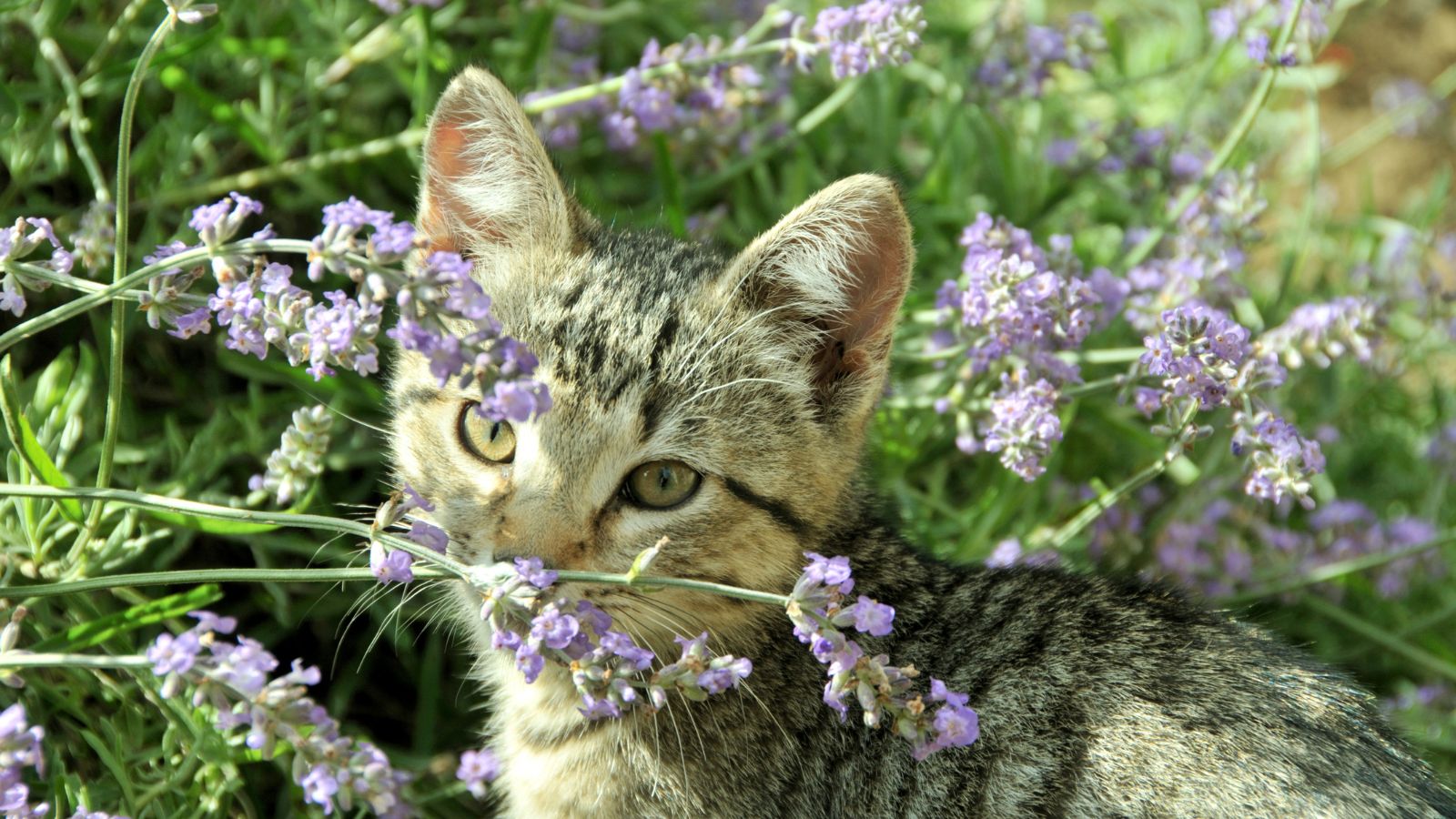

Noticed the telltale signs of cats visiting your yard – scratched-up flowerbeds, unpleasant odors, and trampled plants? If stray or neighborhood cats are trespassing on your property, damaging your beloved garden, and leaving behind an unwelcome mess, it’s time to explore effective and humane solutions.
Cats have a powerful sense of smell, so anything with a strong scent will deter them from approaching your yard. For a natural, eco-friendly, humane solution, consider planting cat-repellent plants. These pest-repellent plants not only add beauty to your garden but also deter stray cats with scents and textures they dislike.
We spoke to experts who shared the best cat-repellent plants, along with tips on how to care for and position them effectively, protecting your yard and maintaining a cat-free outdoor space.
1. Lavender
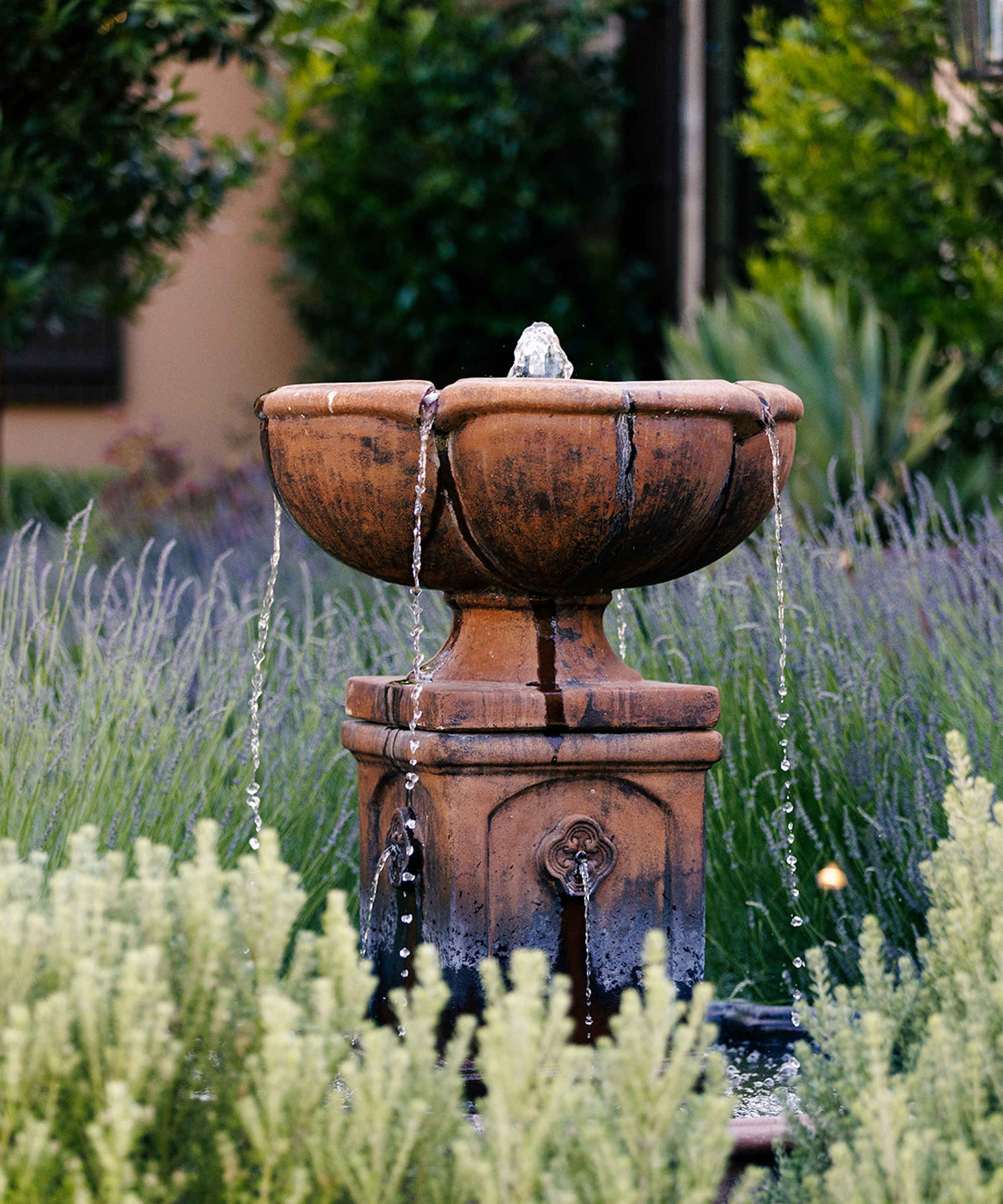
While lavender's scent is delightful to us, cats can't stand it. Caleb Young, at Rare Indoor Plants explains: 'Lavender contains a chemical called linalool, which gives it a strong scent that irritates cats' sensitive noses. That’s why it’s a great choice for keeping them away from areas like vegetable gardens.'
Best placement: Lavender loves sunlight, so choose a spot with plenty of natural light, like a sunny plant bed or a bright windowsill.
Lavender is also a great plant for pollinators, so consider placing it where it can double as a cat repellent and a magnet for bees and butterflies in your garden.
Care tips: 'Lavender grows best in well-drained soil and full sunlight,' says Nikki Bruner, the plant expert at Perfect Plants Nursery. 'It is drought-tolerant once established, so be cautious not to overwater.' Before watering lavender, check the soil has dried out fully by sticking your finger about an inch into the soil. If it feels dry to the touch at this depth, it's time to water. If it still feels moist, wait a few more days before checking again.
Regular trimming is essential to keep the best lavender varieties compact and maintain its fragrant aroma. Nikki adds: 'Pruning after blooming can help maintain the plant's shape and health.'

Caleb is the business director and co-founder of The Planted Pot, and writer at Rare Indoor Plants. He uses this blog to share his favorite tips and tricks for growing and caring for all kinds of plants. His goal is simple: to inspire you to bring more plants into your life and enjoy all the amazing benefits they bring.

Nikki Bruner is the marketing manager at Perfect Plants Nursery. With a passion for plants and expertise in marketing, Nikki combines her knowledge of the nursery industry with her creative thinking to promote and highlight the exceptional offerings of Perfect Plants Nursery. She is dedicated to ensuring customer satisfaction and providing valuable insights for plant lovers.
2. Scaredy Cat
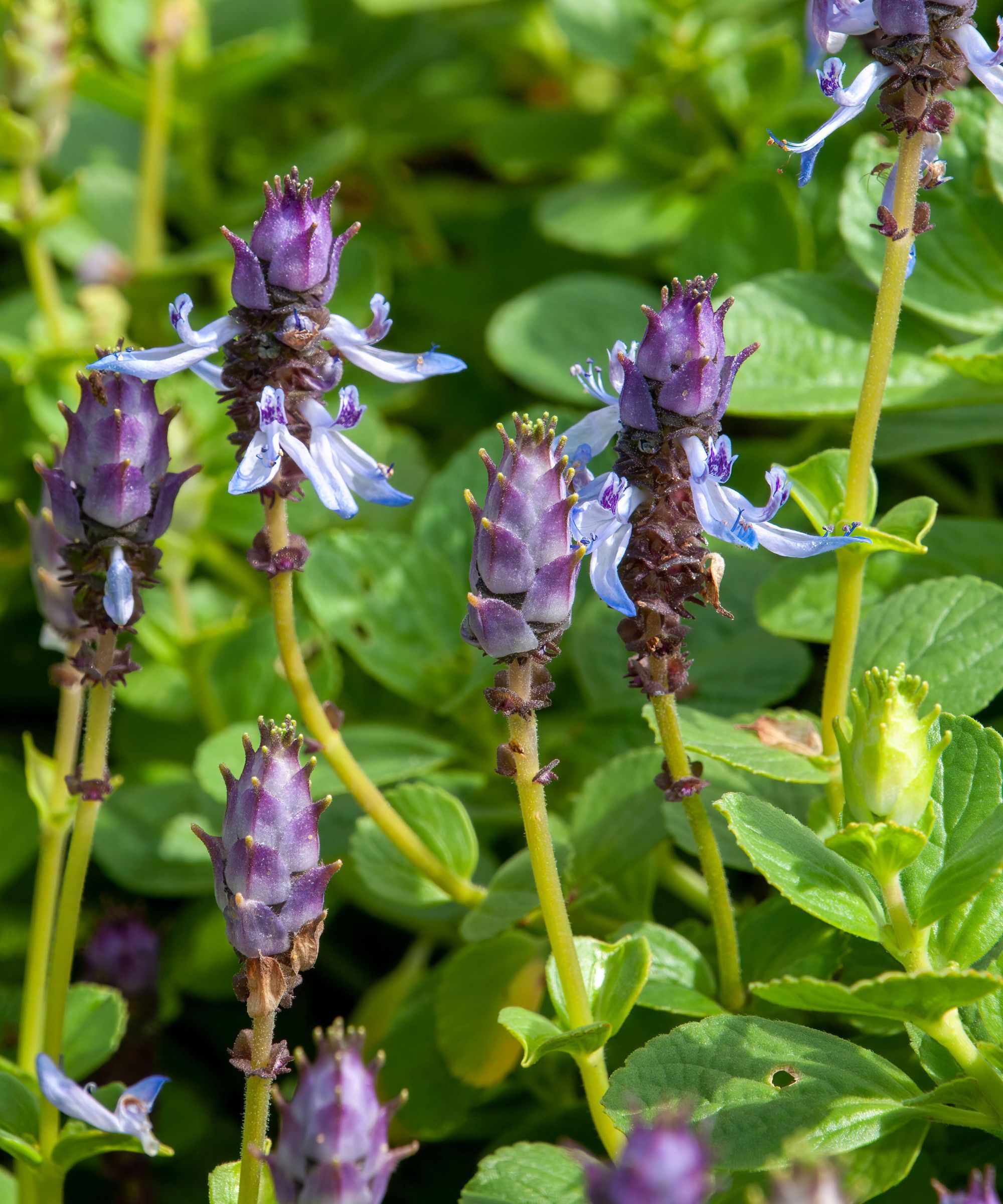
Coleus canina, commonly known as the scaredy-cat plant, faithful to its name, is primarily used to keep cats and other animals away from gardens. Its strong, pungent scent acts as a natural pest control for your yard.
Best placement: They require full sun to thrive, so choose a bright, sunny location for optimal growth.
Tammy Sons, an experienced horticulturist and founder of TN Nursery recommends; 'It should be placed in borders or in pots near where cats tend to frequent,' such as vegetable beds or flower patches you want to protect. Keep in mind that the plant's strong odor can be unpleasant for people as well, so it's best to avoid planting it near seating areas.
Care tips: Coleus canina prefers well-drained soil and consistent warmth. It’s a hardy, low-maintenance plant, but you should be careful not to overwater it – allow the soil to dry out between waterings to prevent root rot.
Consider using a moisture meter, such as this BN-LINK soil meter from Walmart, to check the soil's moisture levels, ensuring it's dry enough before watering again.

Tammy Sons is a horticulture plant expert, garden writer, and educator. Tammy is the CEO and founder of TN Nursery, a thriving online plant nursery based in Altamont, Tennessee. She is also a prolific writer, sharing her knowledge through articles on various gardening topics, including plant care, sustainable landscaping, and the latest trends in horticulture.
3. Rosemary
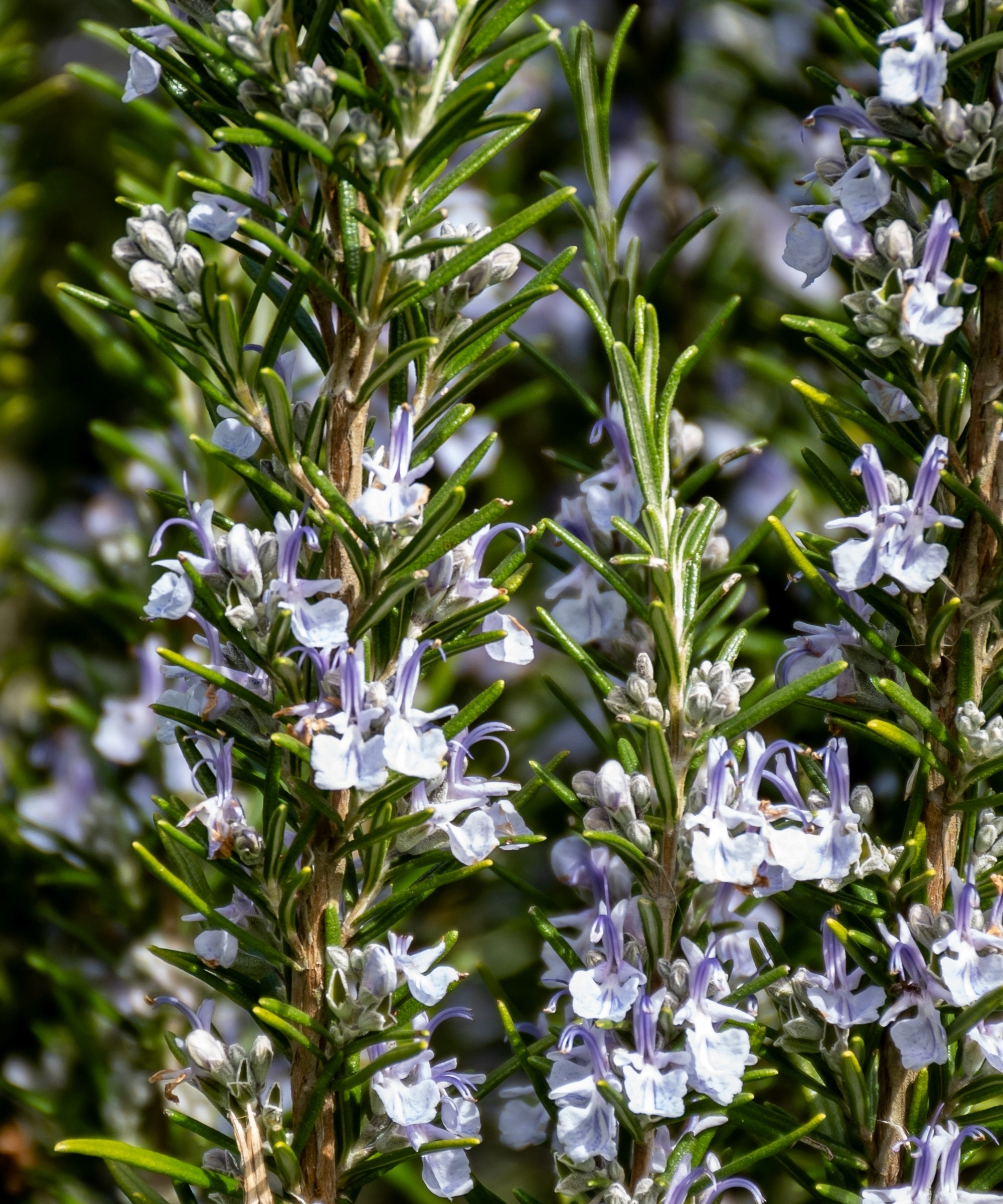
Rosemary is an excellent deterrent for cats, as not only do they loathe the strong piney scent, but the sharp, intense herbal aroma keeps them away.
Best placement: 'Rosemary needs plenty of sun, so make sure it gets at least 6 hours of sunlight a day,' says Caleb Young. 'A sunny windowsill or patio is perfect for it.'
Care tips: Rosemary is a drought-tolerant plant, making it an excellent choice for low-maintenance gardens. To keep it healthy, allow the soil to dry out between waterings. Planting rosemary in well-draining soil, such as sandy or loamy soil, will help prevent excess moisture from accumulating around the roots. We recommend this Miracle-Gro potting mix from Amazon. If you're growing it in a pot, make sure the container has drainage holes, such as this pot planter from Wayfair.
Pruning rosemary regularly will encourage bushy, compact growth and keep the plant from becoming leggy.
4. Curry Plant
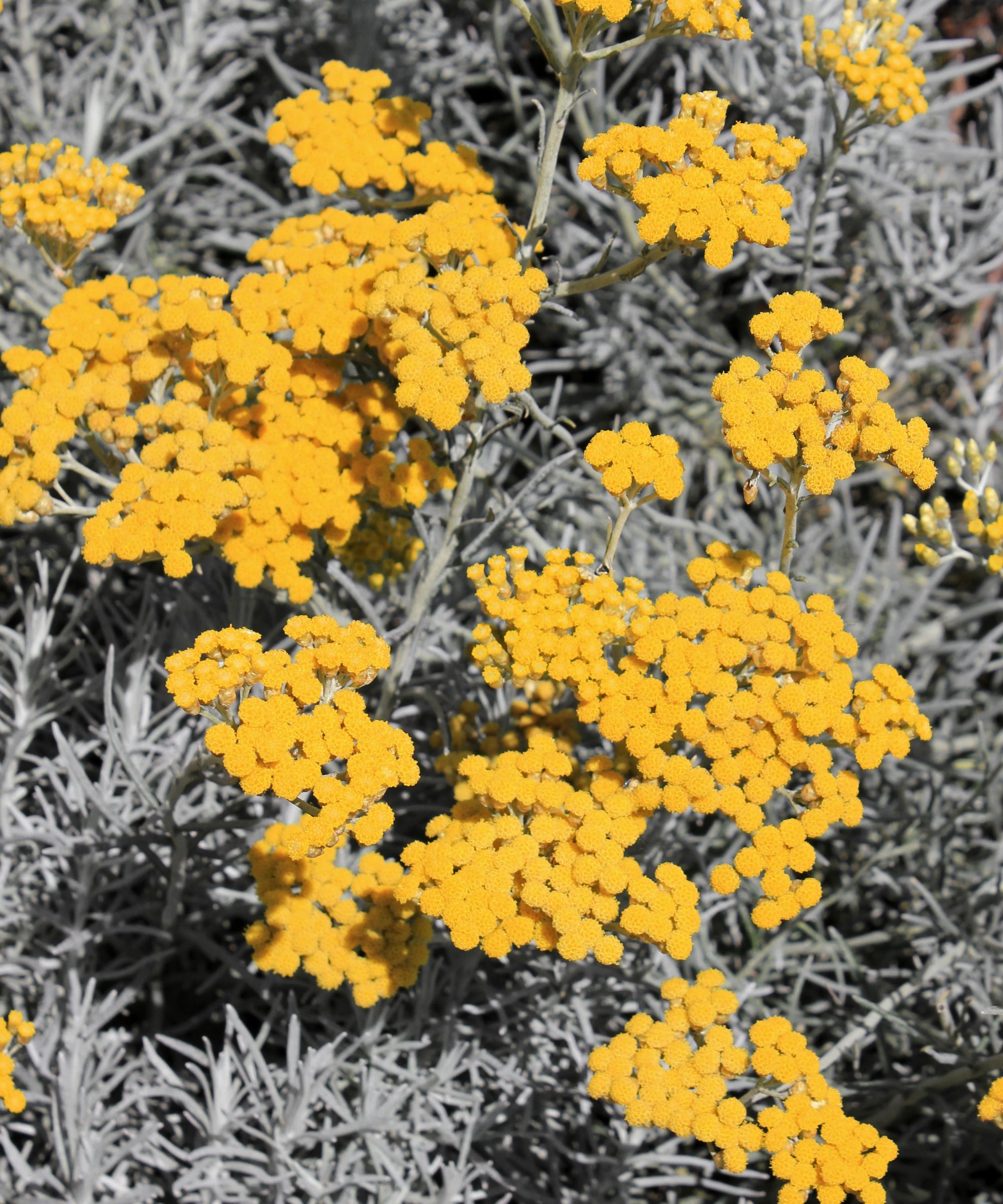
'The curry plant emits a strong, spicy scent that cats find unbearable,' says Caleb Young. 'Its aroma closely resembles curry powder, which is particularly intense for their sensitive noses. That powerful fragrance is more than enough to keep them at bay, no matter where you place it.' Also, the curry plant has a coarse texture that cats tend to dislike.
Best placement: Curry plants thrive in full sun, so be sure to place them in a bright, sunny spot – whether in a raised bed or a well-lit garden corner. Since the curry herb plant releases a strong odor when brushed against, consider planting it near entry points – such as holes in your fence or near gateways to your yard – or areas to discourage cats from venturing.
However, be cautious with this plant. Since it’s technically considered a weed it should be planted sparingly in your garden to prevent it from spreading uncontrollably.
Care tips: The curry plant is relatively low-maintenance once established. Water it sparingly, allowing the soil to dry out between waterings. 'Once settled in, it's drought-tolerant and doesn’t require much care, making it an easy plant to maintain while keeping your garden cat-free,' explains Caleb Young.
5. Lemon trees
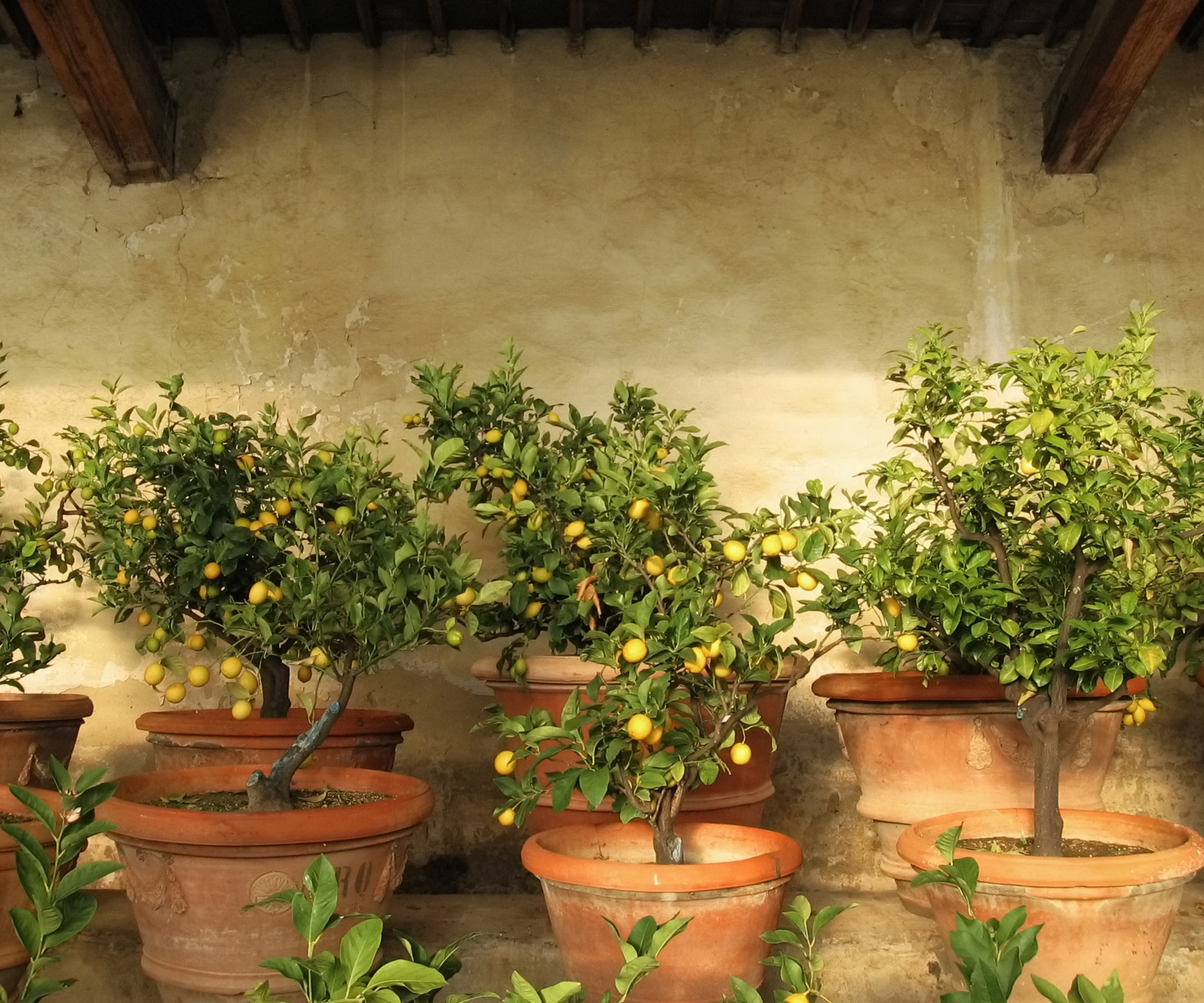
Cats aren’t fans of citrus, and lemon trees are full of oils like limonene and citral that they find unpleasant. The intense lemon scent is enough to make them keep their distance, discouraging cats from jumping down or climbing up to areas where they’re not welcome.
Best placement: One of the best fragrant trees, lemon trees need plenty of sunlight, so where they can receive direct sun for at least 8 hours a day.
Consider planting the lemon tree in a raised bed or a larger pot. This allows it to be higher than other plants, making it an excellent guard for elevated areas that cats might use to get into your garden, such as fences or raised platforms.
Care tips: To keep your lemon tree healthy, ensure the soil drains well to prevent overwatering. They prefer slightly acidic, well-draining soil, such as this organic lemon tree soil from Amazon. You can also use a citrus fertilizer from Amazon to promote healthy growth and fruit production, which in turn enhances the strong scent that cats find repellent.
Lemon trees also enjoy a bit of humidity, so occasionally misting it using a spray bottle with water can help, especially in dry conditions.
6. Rue
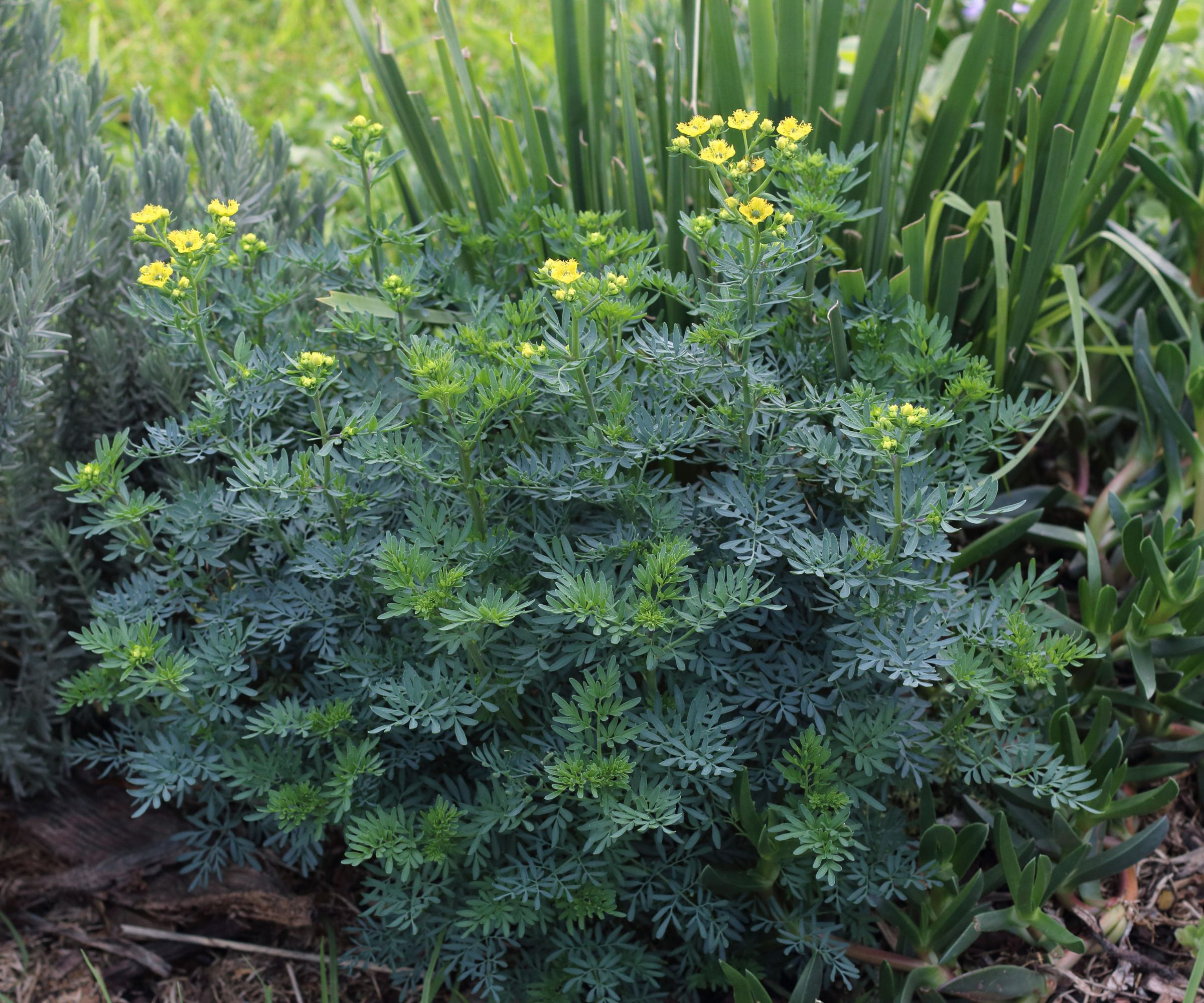
Rue, or Ruta graveolens, has a very strong, spicy scent that cats can’t stand. Not only does this potent fragrance keep cats at a distance, but it also serves as a natural pest repellent.
Best placement: Rue thrives in full sun, so make sure to place it in a spot where it can receive at least six hours of sunlight each day.
Tammy Sons suggests: 'This plant should be placed along edges or mixed into flower beds, where its scent can act as a boundary to keep cats away from your more vulnerable plants.' The bitterness of the plant also makes it an excellent choice for deterring cats from chewing on it, encouraging them to stay away from the area altogether.
However, be mindful that rue is toxic if ingested, so it’s crucial to avoid planting it in spaces where pets or young children may come into contact with it.
Care tips: Rue is fairly low-maintenance but does have some specific needs. Avoid overwatering. Rue prefers to dry out between waterings. Rue also prefers well-draining soil, and it’s a good idea to plant it in a spot that ensures excess water can escape easily.
Remember to regularly check the plant for pests, as its strong scent may also attract unwanted insects.
7. Lemongrass

Just as cats hate lemon trees because of their citrusy scent, they will also be deterred by lemongrass.
Best placement: Plant your lemongrass in a sunny spot where it can receive at least six hours of direct sunlight each day to ensure healthy growth.
By positioning lemongrass strategically, such as along garden borders or near entry points, its strong scent can create an effective barrier, keeping cats at bay and protecting more delicate plants and vulnerable spots in your garden, making it a useful and fragrant companion plant.
Care tips: Gardening expert Nikki Bruner says: 'Lemongrass thrives in full sun and well-draining soil. Since it is native to tropical regions, it prefers warm temperatures and consistent moisture, but be sure not to overwater it.' It’s important to keep the soil consistently moist, especially during the hotter months, but avoid letting it become waterlogged.
'Regular pruning can help promote new growth and keep the plant healthy,' adds Nikki. This will also help maintain its compact shape and prevent it from becoming too unruly.
FAQs
What other scents do cats hate?
Other common scents that cats find repellent include:
- Lemon thyme
- Pennyroyal
- Catnip
- Coffee
- Oregano
- Eucalyptus
- Peppermint
- Cinnamon
- Garlic and onion
- Cedarwood
Using these scents in combination with plants that naturally release them or essential oils can help keep cats out of your yard. Note, too, which plants are toxic to cats, because while you may want to discourage neighbors' cats, you won't want to harm them.
When using plants to repel cats, the strength of their scent is key to their success as a deterrent. If the plant isn't healthy and thriving, the fragrance may not be potent enough to keep cats away. Regular care and maintenance of these plants will help maintain their effectiveness.
As Tammy Sons advises: 'Some extra tips would be to keep these plants healthy because if their scent is not robust, cats will not be easily deterred. If the problem continues, add more of these plants.'
Sign up to the Homes & Gardens newsletter
Design expertise in your inbox – from inspiring decorating ideas and beautiful celebrity homes to practical gardening advice and shopping round-ups.

Lola Houlton is a news writer for Homes & Gardens. She has been writing content for Future PLC for the past six years, in particular Homes & Gardens, Real Homes and GardeningEtc. She writes on a broad range of subjects, including practical household advice, recipe articles, and product reviews, working closely with experts in their fields to cover everything from heating to home organization through to house plants. Lola is a graduate, who completed her degree in Psychology at the University of Sussex. She has also spent some time working at the BBC.
-
 No, drapes aren't just for indoors – here's why adding curtains to your patio will make your outdoor space look instantly more luxurious
No, drapes aren't just for indoors – here's why adding curtains to your patio will make your outdoor space look instantly more luxuriousWho said curtains were limited to indoors only? These elegant drapery designs will elevate any pergola, porch, or loggia for comfortable outdoor living
-
 3 golden rules for a clutter-free sunroom – for a stunning, sunny space that stays streamlined
3 golden rules for a clutter-free sunroom – for a stunning, sunny space that stays streamlinedBoost the beauty of your brightest room with these simple expert-approved tips
-
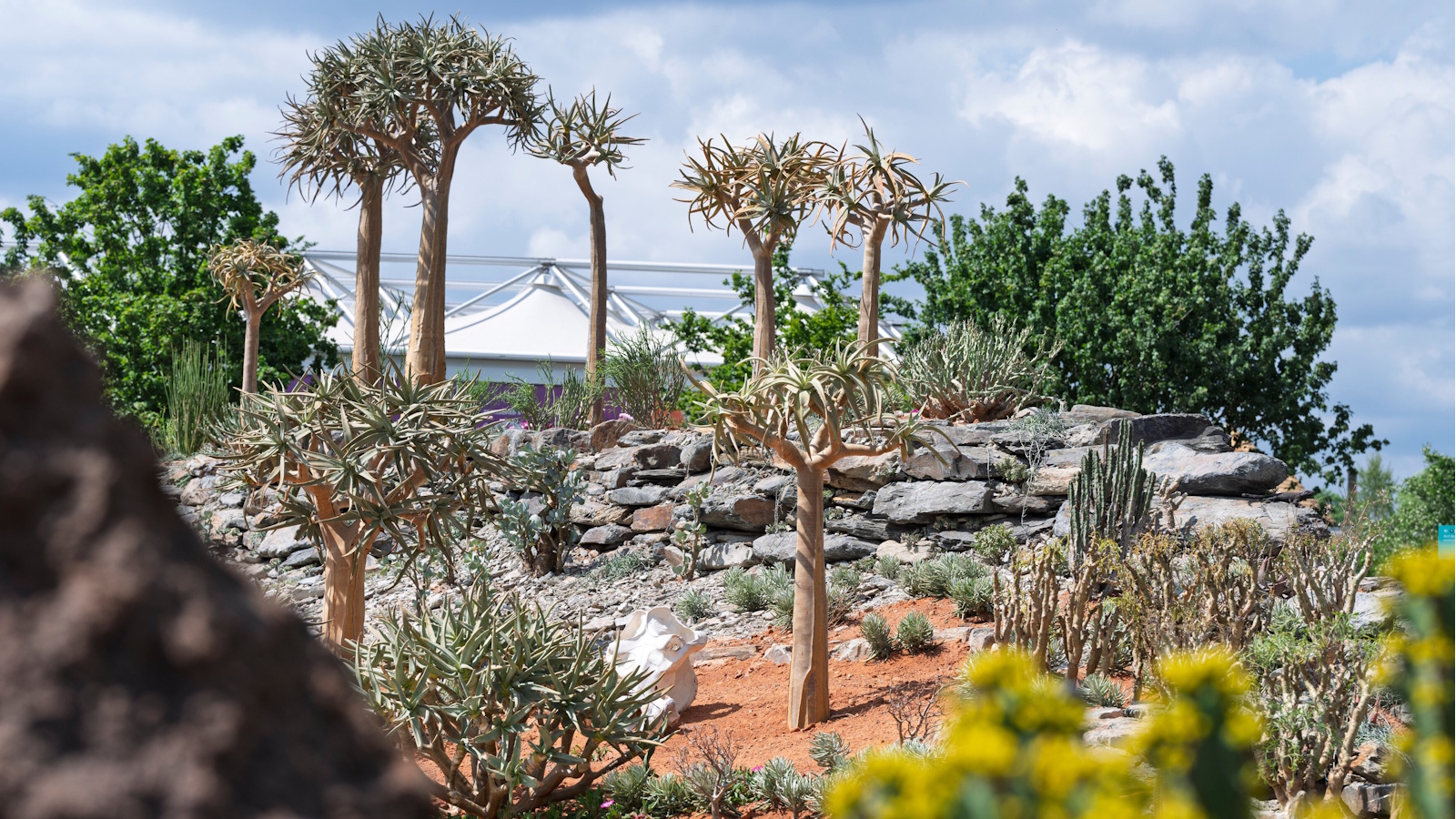 Chelsea Flower Show's South African succulent garden is a masterclass in sculptural planting – the designers reveal how you can easily grow these desert plants at home
Chelsea Flower Show's South African succulent garden is a masterclass in sculptural planting – the designers reveal how you can easily grow these desert plants at homeNative to an arid, hot climate, some of these unique plants can surprisingly be grown throughout the US, too
-
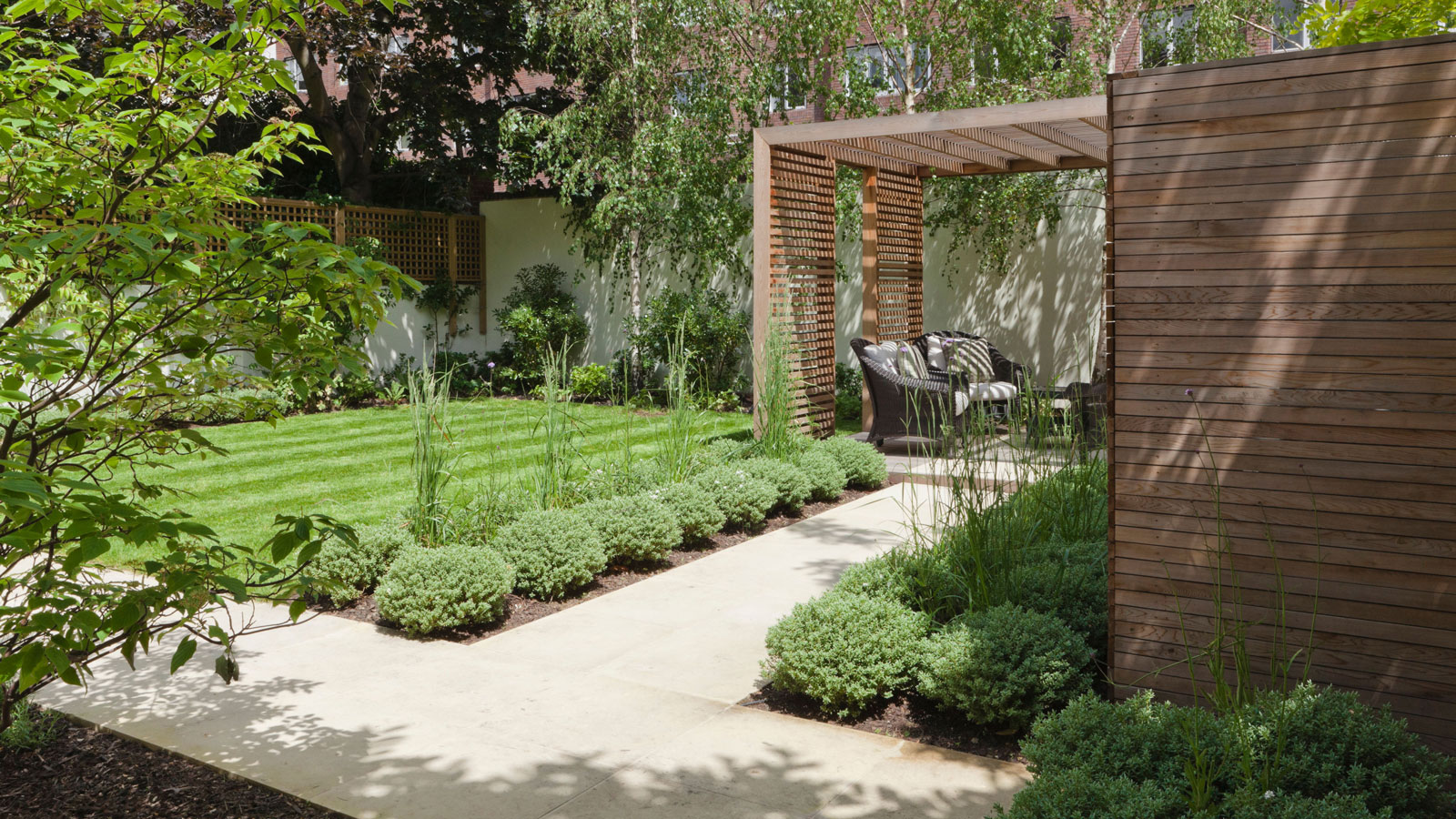 How to design a minimalist garden – 7 beautiful ideas to transform your backyard into a calming retreat
How to design a minimalist garden – 7 beautiful ideas to transform your backyard into a calming retreatGarden designers share their top tips for a dreamy, stripped back outdoor space
-
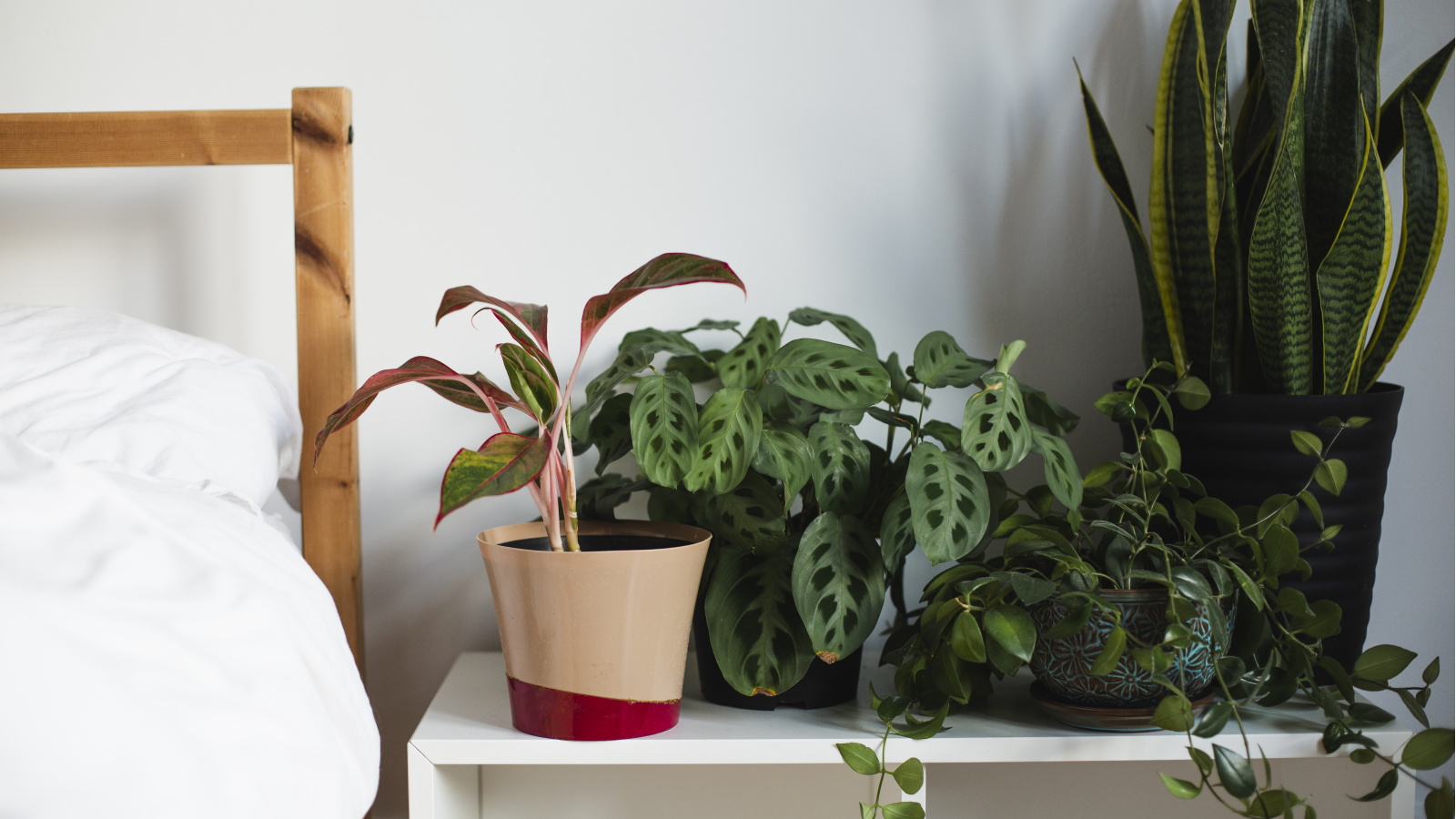 5 houseplants you should never place in your bedroom, according to Feng Shui and interior design experts – plus which plants to choose instead
5 houseplants you should never place in your bedroom, according to Feng Shui and interior design experts – plus which plants to choose insteadThese plants are thought to bring feelings of disruption to the most relaxing space in your home
-
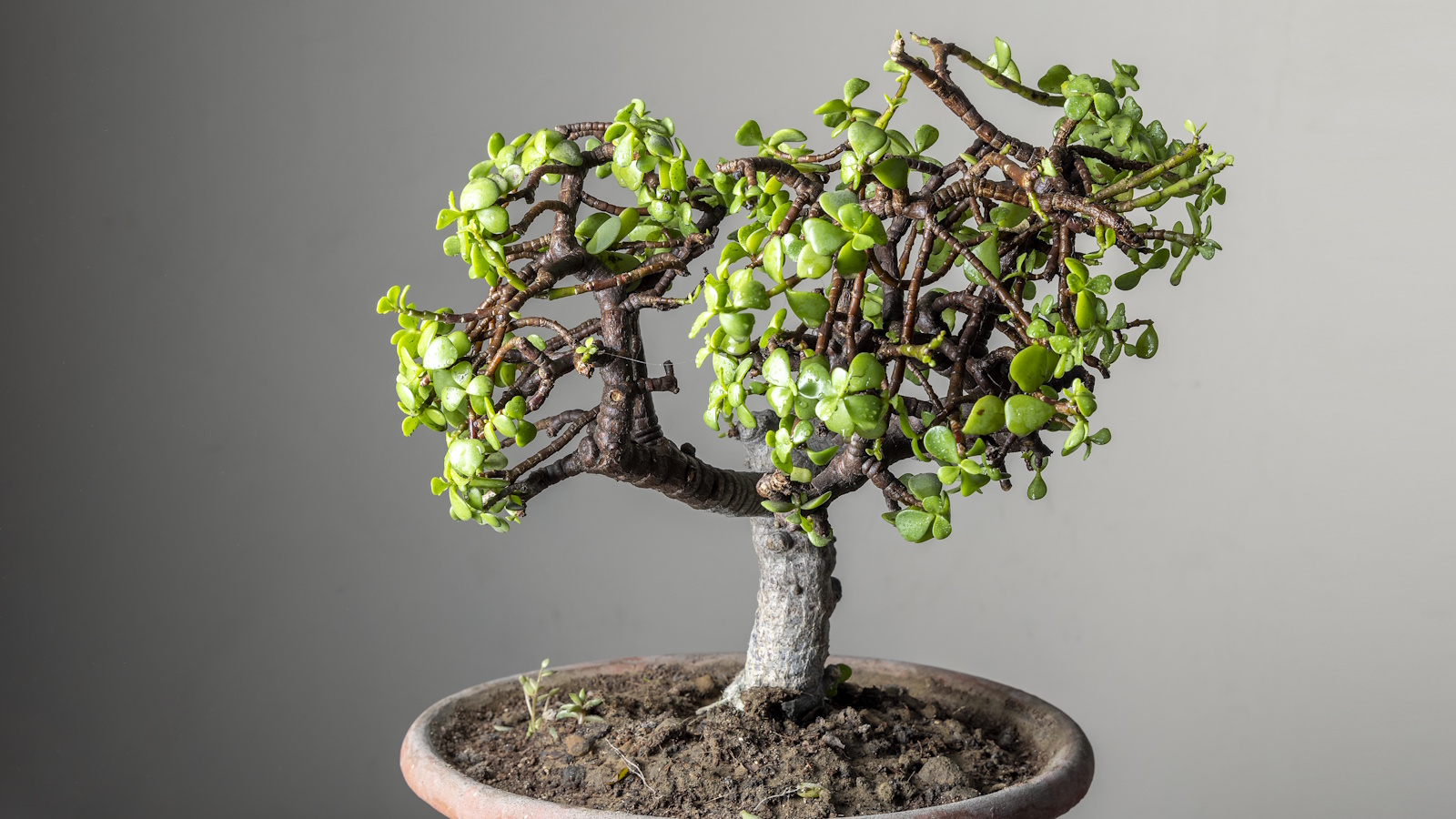 How to master the art of growing dwarf jade bonsai trees – the low-maintenance houseplant believed to bring good luck
How to master the art of growing dwarf jade bonsai trees – the low-maintenance houseplant believed to bring good luckGrowing dwarf jade plants will elevate your indoor jungle
-
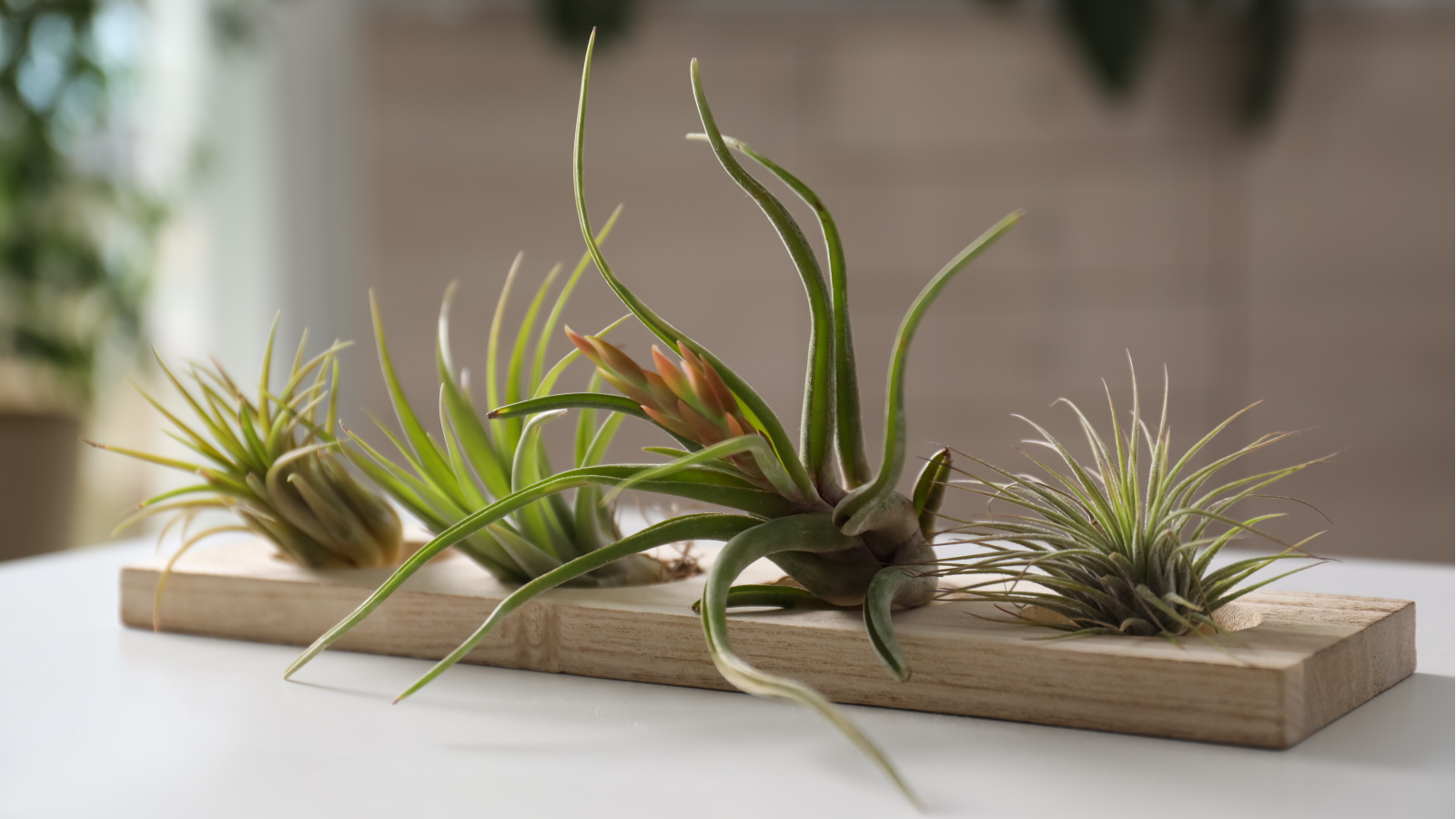 3 air plant mistakes a plant expert says are likely killing yours – plus tips on how to avoid them
3 air plant mistakes a plant expert says are likely killing yours – plus tips on how to avoid themYou may be surprised by how easy it is to grow these unique houseplants
-
 New NASA technology is making it possible to grow plants using fog – it could bring faster harvests with less waste
New NASA technology is making it possible to grow plants using fog – it could bring faster harvests with less wasteThis indoor garden set-up uses smart tech and fine mist to provide plants with water and nutrients
-
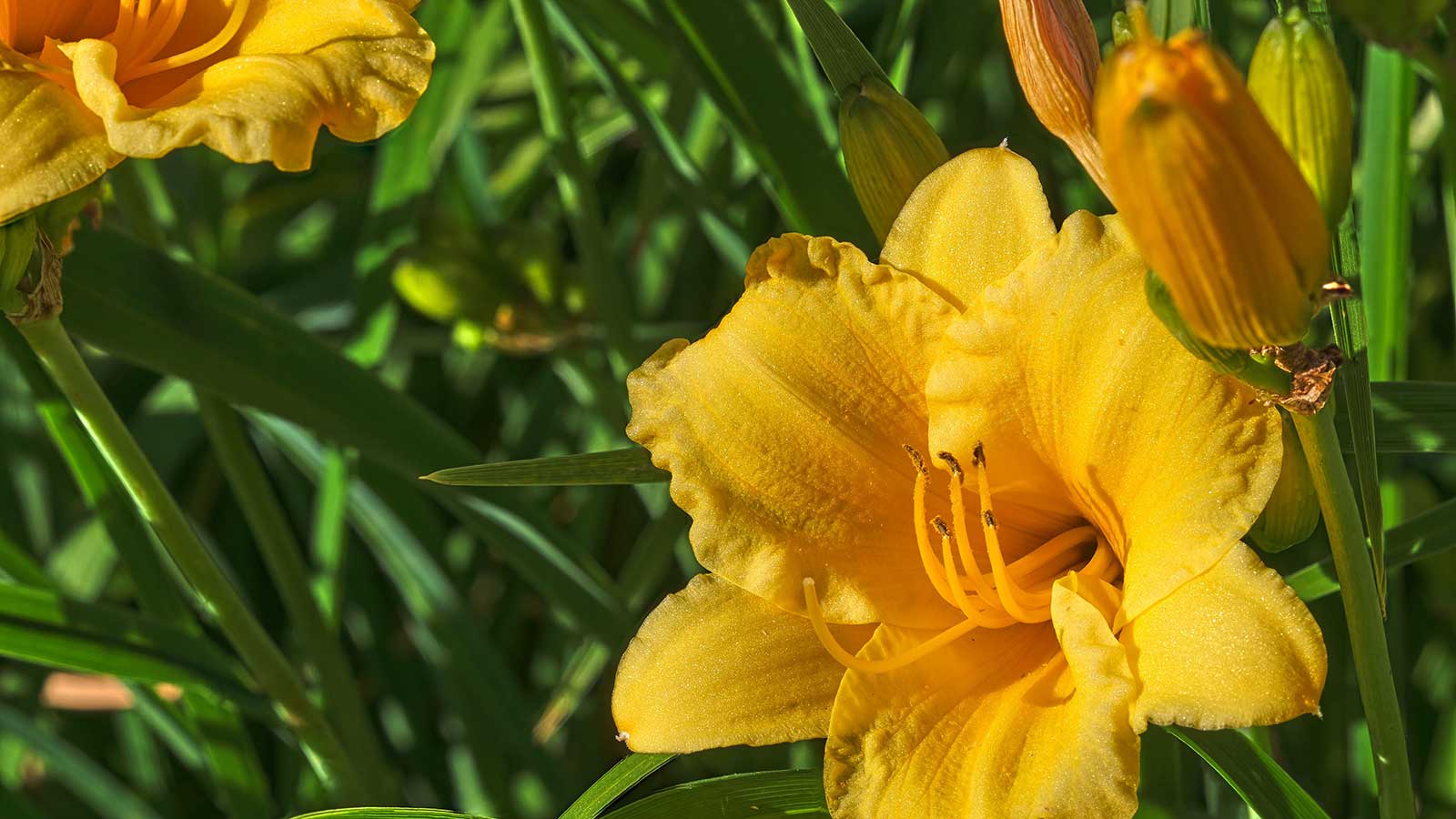 How to grow Stella d'Oro daylily – for easygoing, sunny blooms in borders and pots
How to grow Stella d'Oro daylily – for easygoing, sunny blooms in borders and potsPlant-care professionals share top tips for these pretty perennials, including advice on watering, pruning, and more
-
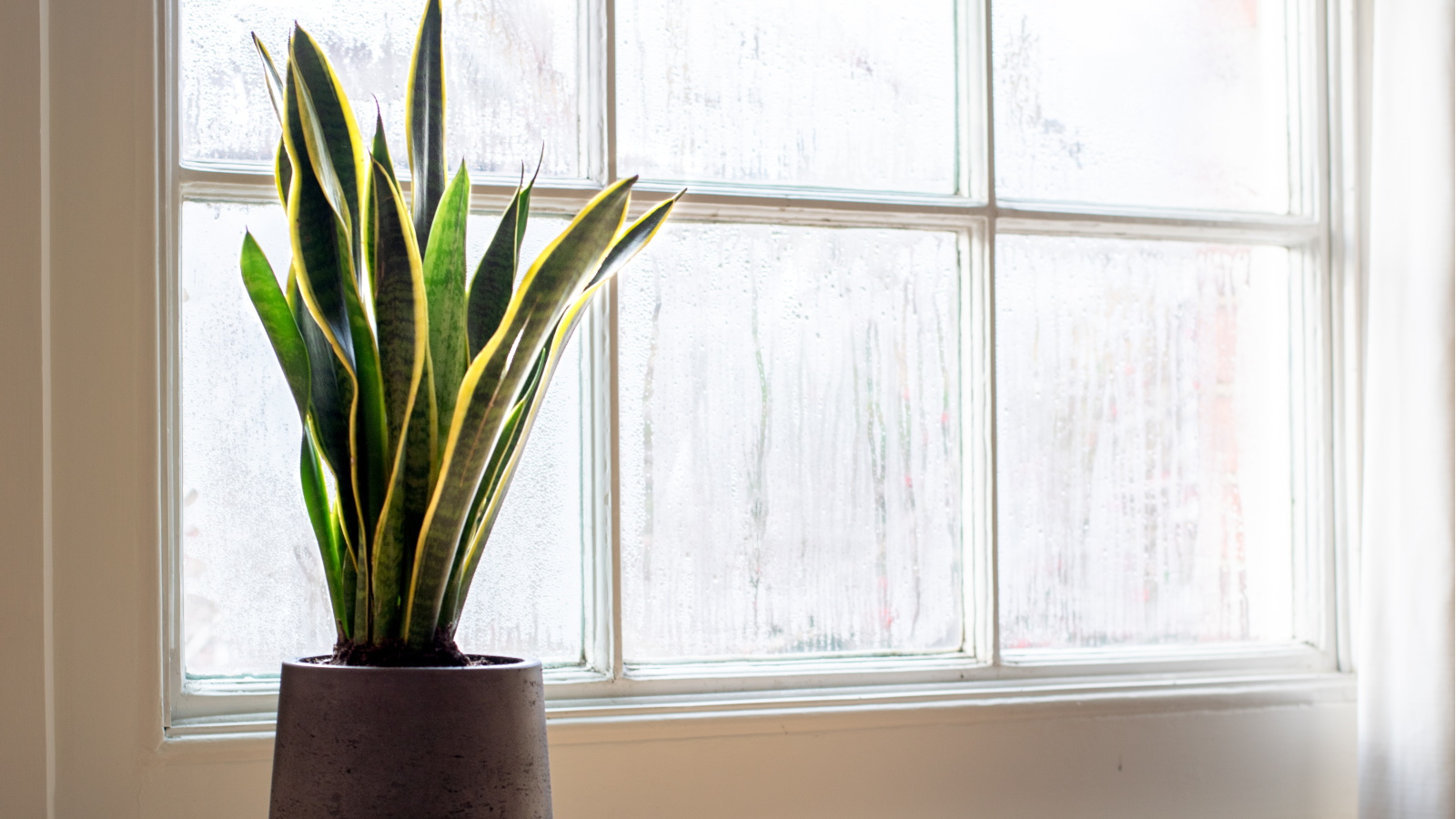 Are snake plants cold-tolerant? Houseplant expert reveals the ideal temperature for growing these desert plants at home
Are snake plants cold-tolerant? Houseplant expert reveals the ideal temperature for growing these desert plants at homeThis explains why snake plants are versatile to work with indoors and out